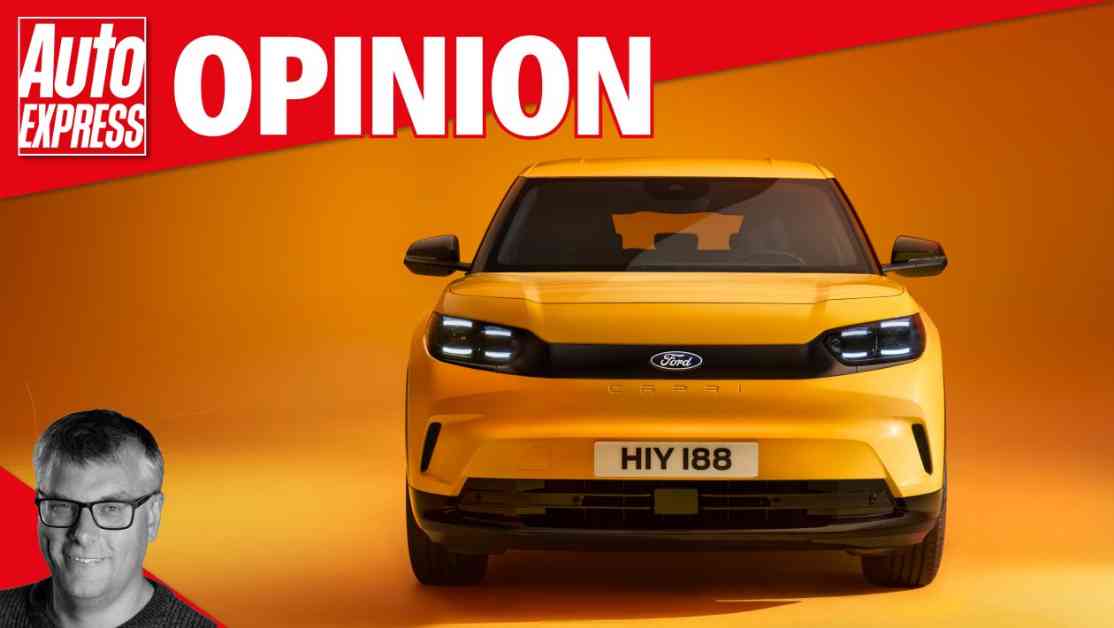Ford’s decision to resurrect the Capri name on a new electric SUV has sparked controversy and internet outrage among automotive enthusiasts. The move has raised questions about the company’s strategy and the impact on its loyal fan base. Fiat’s CEO Olivier Francois’s comments about building utility vehicles to meet consumer demand have added fuel to the debate surrounding Ford’s bold branding choice.
The Power of Publicity
The Ford Capri holds a special place in the hearts of car enthusiasts, with its iconic status dating back over 50 years. The decision to bring back the Capri name on a modern electric SUV signifies Ford’s attempt to tap into nostalgia while embracing the future of electric mobility. However, this move has not been without its critics, who argue that the Capri’s legacy should be preserved in a more traditional sense.
Despite Ford’s efforts to justify the revival of the Capri name by highlighting the evolution of design language from the 1986 coupé to the 2024 electric SUV, many fans remain skeptical. The company’s decision to drop the Fiesta in favor of focusing on higher-riding models reflects a shift in consumer preferences towards SUVs and crossovers. Fiat’s CEO’s emphasis on delivering what people want underscores the industry’s response to changing market demands.
Testing the Limits
Ford’s bold decision to reintroduce the Capri name on an electric SUV has stirred up controversy and divided opinions within the automotive community. While some argue that it dilutes the brand’s heritage, others see it as a strategic move to attract a new generation of buyers. The company’s willingness to push the boundaries of traditional branding demonstrates its commitment to innovation and adaptation in a rapidly evolving industry.
The backlash against Ford’s revival of the Capri name highlights the challenges of balancing tradition with innovation in the automotive sector. As consumer preferences shift towards SUVs and electric vehicles, automakers face pressure to rethink their product offerings and brand strategies. Ford’s decision to leverage the Capri’s legacy in a new electric SUV reflects a broader trend towards reinventing classic nameplates for the modern market.
The Future of Automotive Branding
In an era of rapid technological advancements and changing consumer preferences, automakers must navigate the delicate balance between honoring tradition and embracing innovation. Ford’s revival of the Capri name on a new electric SUV exemplifies the industry’s efforts to stay relevant and appeal to a diverse range of customers. While some may view this move as a departure from the brand’s heritage, others see it as a necessary evolution to stay competitive in a rapidly evolving market.
The controversy surrounding the Capri’s comeback underscores the challenges faced by automakers in reimagining iconic nameplates for a new era. Ford’s decision to test the limits of traditional branding by associating the Capri name with an electric SUV reflects the company’s commitment to pushing boundaries and exploring new possibilities. As the automotive industry continues to evolve, it is likely that more manufacturers will follow Ford’s lead in reinterpreting classic models for a modern audience.
As the debate over the Ford Capri’s revival rages on, it remains to be seen whether the company’s gamble will pay off in terms of sales and consumer reception. While traditionalists may lament the departure from the Capri’s original legacy, others see the move as a necessary adaptation to changing market dynamics. Ultimately, Ford’s decision to reintroduce the Capri name on a new electric SUV is a testament to the power of publicity and the enduring appeal of automotive nostalgia.










